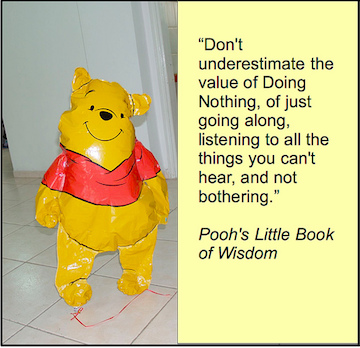– Bret Nason, Lancaster, Wisconsin bankruptcy attorney
More bankruptcy questions? Check our our FAQ page.
 This page contains general information. Contact a WBG attorney for specific advice.
This page contains general information. Contact a WBG attorney for specific advice.
Not everyone who is dealing with financial hardship needs to file a bankruptcy. When you visit with a WBG attorney, you will be given options for dealing with your problems. While most of our clients end up filing a Chapter 7 or Chapter 13 bankruptcy, they are all given information about bankruptcy alternatives. One of those alternatives is to simply do nothing at all.
Doing nothing means just ignoring your creditors. Stop making payments to them and (obviously) stop incurring more debt. Buy everything with cash, check, or debit card and stop using credit. If you want to keep your house or car, keep making those payments. This bankruptcy alternative works best with credit card debts or medical bills, not home mortgages or car loans. The best part about this strategy is that it doesn’t cost you anything in legal fees. (Believe it or not, lawyers haven’t yet figured out how to charge you for doing nothing.) But what will happen if you try this?
Consequences
First, your creditors will call you, asking for payment. Depending on the debt collector, these callers can get quite nasty. If they are unable to convince you to pay your debt voluntarily, the creditors will likely sue you. Assuming you truly owe the debt, the creditor that sues will get a judgment against you and will then try to collect on the debt. Here’s where it gets a little tricky.
Some people are “collection-proof.” This means that creditors can get judgments against the debtor, but cannot take anything from the debtor. The most common way for a judgment creditor to collect on its judgment is to garnish wages. But some people don’t have wages that can be garnished because:
- They are retired and living on Social Security, which is completely protected from debt collectors,
- They are unemployed and have no wages to garnish, or
- They are employed, but their household income is beneath the poverty level and their wages are exempt from garnishment.
If you are collection-proof, your attorney may advise that you not file a bankruptcy case right away. If creditors can’t get anything from you, it might make sense to hold off until your situation changes and you are no longer collection-proof. Save the bankruptcy filing for a time when you have wages to protect.
While doing nothing is a free solution, it can also be stressful. You’ll still owe the money, even though creditors may not be able take your wages or any property from you. Creditors and debt collectors might continue their calls, which can get tiresome. And you might have difficulty sleeping knowing that you owe this money and can’t pay it. Some people are perfectly fine doing nothing once they understand that creditors can’t take anything from them. Others want the peace of mind that a fresh start and dealing with the debt provides.
Summary
Pro: No legal fees, creditors may not be able to collect from you if you’re collection-proof.
Con: Doesn’t deal with the underlying debt, may be stressful, doesn’t provide a fresh financial start.
You don’t need to have your mind made up before you speak with a bankruptcy lawyer. Call today to learn if bankruptcy or a bankruptcy alternative is the right move for you.
More bankruptcy questions? Check our our FAQ page.
This page contains general information. Contact a WBG attorney for specific advice.
Wisconsin Bankruptcy Guide is provided by law firms designated as Debt Relief Agencies by the federal government because we help people file for relief under the Bankruptcy Code. We also provide other types of debt relief options.
Image Credit: flickr/Doug Belshaw
